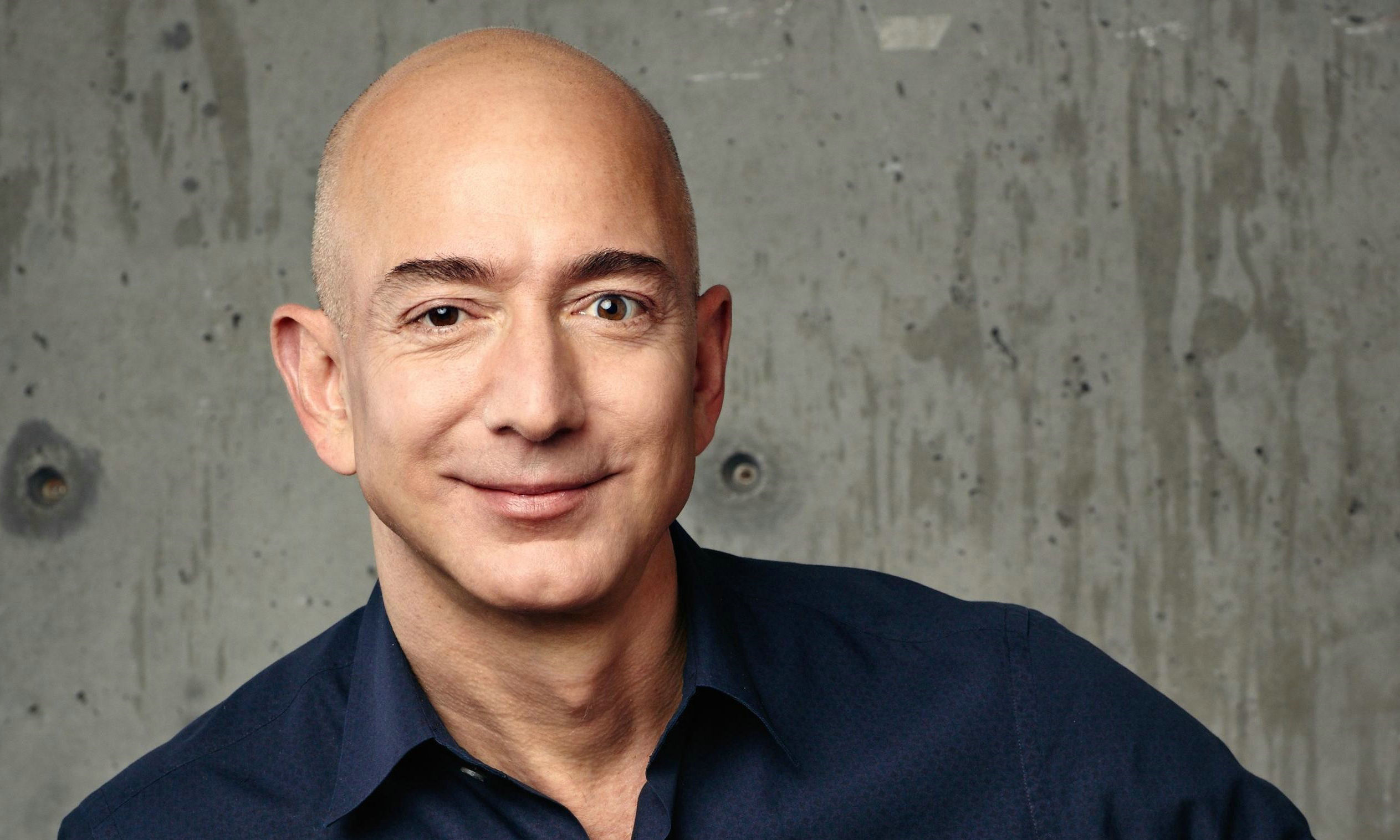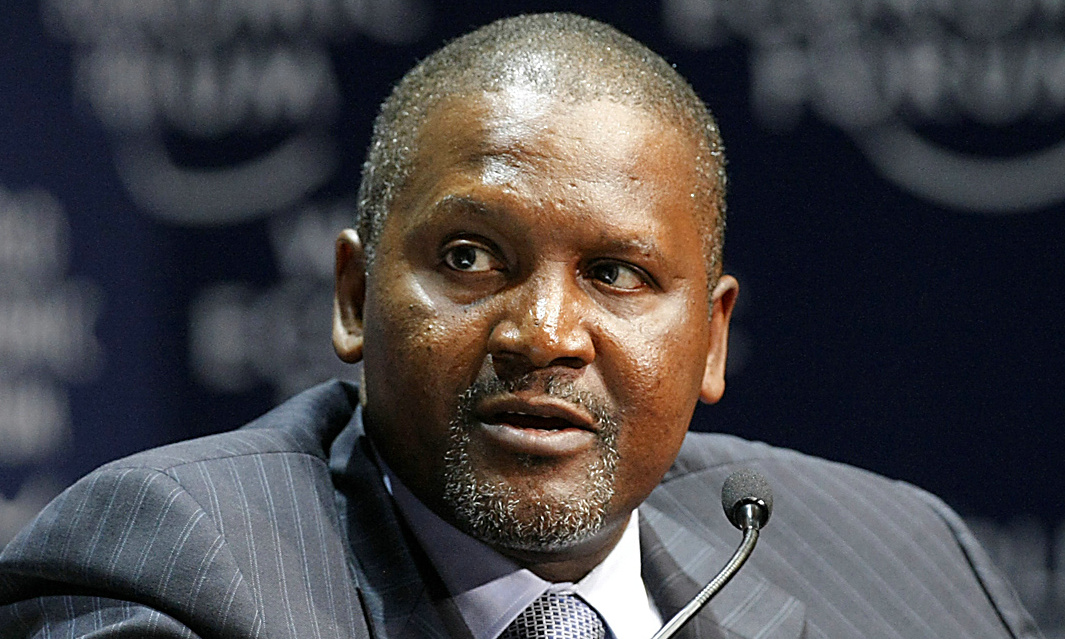In the heart of the African continent, a legendary figure has used his wisdom and perseverance to write an immortal legend of starting from a bag of sugar to becoming the richest man in Africa. He is Aliko Dangote, a name that reverberates in the business world, representing the symbol of the rise of the African economy. This article will take you into the wonderful world of Dangote to explore how he has built a huge business empire in multiple fields such as cement, sugar, and flour, and is committed to changing the economic face of Africa to realize his dream of African renaissance.
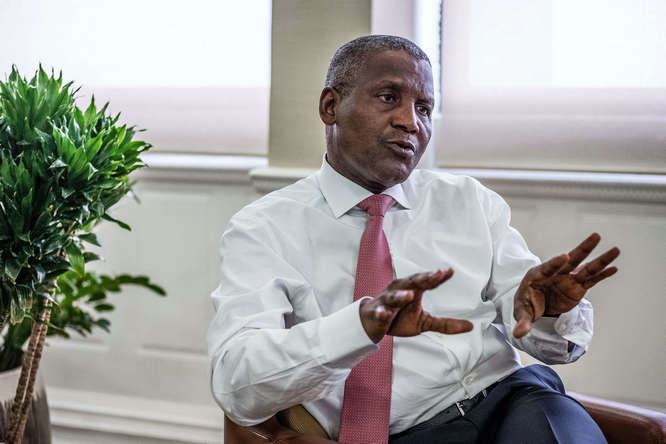
The commercial bloodline of the family
"I come from a business family, and the business spirit seems to be innate." Aliko Dangote once described his family background in this way. His grandfather, Alhaji Alhassan Dantata, was Nigeria's first billionaire, engaged in peanut trading and commodity wholesaling, which provided Dangote with a unique business enlightenment environment. Growing up in a family business, he not only learned basic business principles, but also developed a strong interest and keen insight in business. The family's business tradition laid a solid foundation for Dangote's future business empire.
Dangote grew up in the northern Nigerian city of Kano, a place with a long history and diverse culture. The education system here integrates Western education and traditional culture, providing Dangote with a broad knowledge and open-mindedness. He received education at a boarding school in Kano in his early years and then went to study in the UK. This experience not only allowed him to master the international business language and skills, but also gave him a global perspective and thinking mode. The diversity of education has laid a solid foundation for Dangote's later cross-border business operations.
"I never fear taking risks because I know that without risks, there is no success." This statement by Dangote is a true portrayal of his entrepreneurial spirit. During his childhood in Kano, he often helped his grandfather manage his business, which gave him an early taste of the ups and downs of business. At the age of 19, Dangote used the small amount of start-up capital borrowed from his family to start his first trade business - importing sugar from Brazil and reselling it in Nigeria. This attempt, although small, was of great significance. It ignited Dangote's enthusiasm for entrepreneurship and also marked the starting point of his future business empire.
Dangote's growth environment is not only influenced by business, but also deeply influenced by Nigerian social culture. In such a society, family, community, and the spirit of mutual assistance occupy an important position. Dangote's family has always attached great importance to giving back to society, which has left a deep mark on his growth process. He often mentions: "True success is to be able to bring a positive impact to society." It is this value that drives him to actively participate in social welfare activities such as education, health, and disaster relief through the Aliko Dangote Foundation after his business success, and strive to improve the living conditions of the African people.
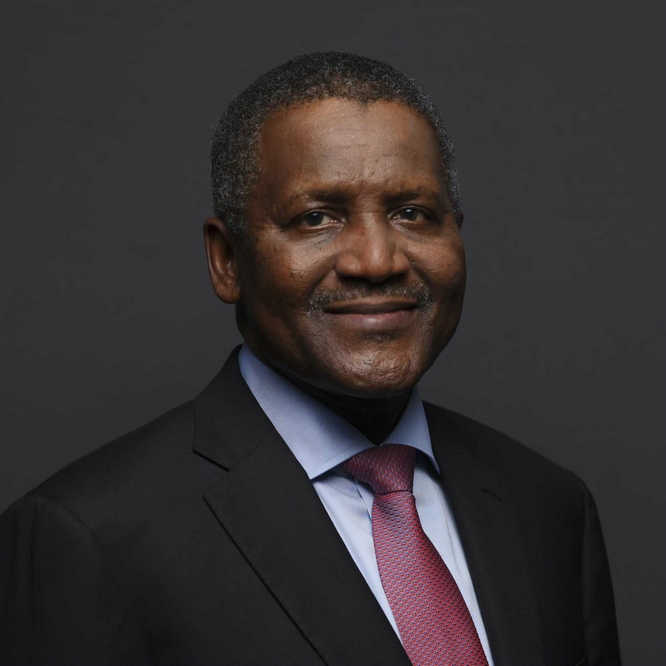
A trade, a legendary journey
"I always believe that if you have a dream, you must pursue it bravely." This is what Aliko Dangote once said. At the age of 19, with a start-up capital of $3,000 inherited from his grandfather and a keen sense of business opportunities, Aliko embarked on a journey to Brazil. At that time, there was a huge gap between supply and demand in the Nigerian sugar market, and Brazil, as one of the world's major sugar producers, was undoubtedly an ideal supply source. This time, the young Aliko decided to take a chance and turn his dream into reality.
Faced with a strange market, complex international trade rules, and high transportation costs, Aliko demonstrated extraordinary tenacity and wisdom. He personally went deep into the sugarcane fields in Brazil to negotiate with local suppliers, not only ensuring the quality and price advantage of sugar, but also carefully planning the logistics plan to effectively reduce costs. The successful import of the first batch of goods not only filled the gap in the Nigerian market, but also earned Aliko his first pot of gold in his life, amounting to millions of dollars.
According to records, in the first year of Aliko's sugar import, it occupied about one-tenth of the Nigerian sugar market share. This achievement is not only due to his accurate judgment of market supply and demand, but also shows his excellent ability in supply chain management. As the business continued to expand, Dangote Sugar Refinery (DSR) was officially established in 2000, gradually becoming one of the largest sugar producers in Africa, with an annual output of millions of metric tons, not only meeting the needs of the domestic market, but also exporting to neighboring countries, further consolidating Aliko's leading position in the sugar industry.
Aliko Dangote's Brazilian sugar trade is not only the starting point of his business career, but also a springboard for his diversified development. Using the profits obtained from the sugar industry, Aliko began to enter multiple fields such as cement, flour, and oil, building a huge Dangote Group. Behind this series of successes is Aliko's insistence on the business philosophy of "constantly learning, constantly innovating, and constantly expanding."
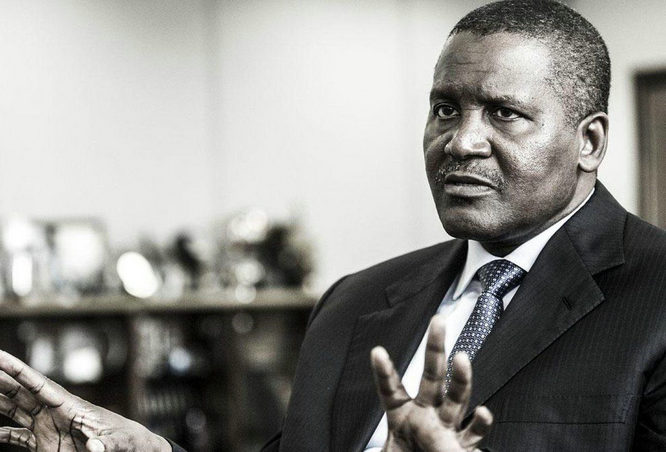
The collision of dreams and reality
"On the road to entrepreneurship, every success is built on countless failures." This sentence by Aliko Dangote is his inner monologue when facing challenges. When Dangote moved from a single sugar trading business to a diversified group enterprise, the first problem he faced was the financial pressure brought about by the expansion of the scale. As the group extended its tentacles to multiple fields such as cement, flour, and petrochemicals, the tension of the capital chain became the primary problem. How to ensure sufficient funds and operational efficiency while maintaining rapid expansion is the first stumbling block in front of Aliko.
"The market is like the ocean, sometimes calm and sometimes stormy." Aliko Dangote's group had to face the test of global economic fluctuations during the expansion process. For example, the 2008 global financial crisis caused a sharp decline in market demand and a rise in raw material prices, bringing huge pressure to many of the group's projects. Especially in the cement business, the increase in costs and the weakness in demand once made Dangote Cement face unprecedented challenges.
Dangote Group has always adhered to the concept of "Made in Africa, Serving Africa", but this also means that it has to operate in the African continent with backward infrastructure and a changeable policy environment, facing many difficulties. The Dangote refinery under construction, known as the largest refining project in Africa, has been postponed many times due to land acquisition, funding delays, and technical cooperation issues. Aliko knows that to break these bottlenecks, in addition to improving the external environment, more internal management innovation and optimization are needed.
In the face of these challenges, Aliko Dangote demonstrated extraordinary strategic vision and leadership. In order to alleviate the financial pressure, he adopted a diversified financing strategy, including bank loans, bond issuance, and attracting foreign direct investment, to ensure the smooth progress of the project. In response to market fluctuations, he emphasized the flexible adjustment of production plans, strengthened cost control, and actively explored new markets to diversify risks. In the problem, Aliko spared no effort to promote government cooperation, improve the investment environment, and strengthen technological exchanges with international partners to improve the level of local industries.
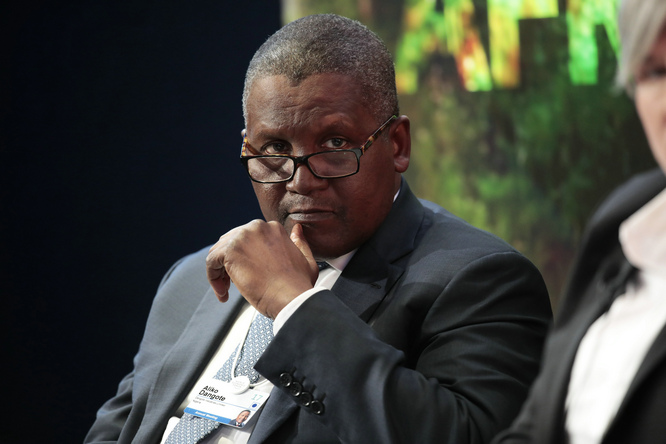
The agricultural vision of the King of Flour
"Investing in the foundation is investing in the future." This sentence by Aliko Dangote has become the core driving force for him to enter the flour industry. He realized that flour, as the basic raw material of daily diet, has huge market potential, especially in the populous African continent. With the improvement of living standards, the demand for bread and other wheat products continues to grow, and Dangote saw a golden opportunity that can not only meet the basic needs of people's livelihood, but also promote the country's economic self-sufficiency.
Dangote Flour Mills (DFM) emerged, marking Aliko Dangote's official entry into the flour industry. DFM not only introduced advanced international production equipment and technology, but also focused on the procurement and processing of local raw materials, aiming to reduce dependence on foreign countries and increase the added value of African agriculture. Through the efficient integration of the supply chain, DFM quickly became a major flour supplier in Nigeria and even West Africa, and its products covered all levels from household packaging to industrial-grade wholesale.
It is estimated that DFM has an annual production capacity of millions of metric tons, creating tens of thousands of jobs locally, directly promoting the economic development of rural areas. In addition, Dangote's market share in flour has been increasing year by year, not only meeting the needs of the domestic market, but also successfully exported to neighboring countries, realizing the regional circulation and value-added of African agricultural products. Behind this series of achievements is Aliko's relentless pursuit of technological innovation and market expansion.
The flour industry also faces many challenges, such as global wheat price fluctuations, intensified market competition, and backward local wheat planting technology. In the face of these, Dangote adopted a diversified raw material procurement strategy to reduce price risks; at the same time, it increased support for local wheat planting, including providing seeds, technical training, and guaranteed purchase, aiming to gradually increase the local raw material self-sufficiency rate. Aliko firmly believes that only by realizing the comprehensive localization of the industrial chain can we truly seize the initiative in the industry.
"Business success and social responsibility go hand in hand." Aliko Dangote's layout in the flour industry not only focuses on economic benefits, but also pays more attention to social impact. By improving agricultural productivity and improving farmers' livelihoods, the Dangote flour project has become an important force in promoting rural economic transformation and reducing poverty. At the same time, the group is also committed to environmentally friendly production, reducing pollution, and ensuring the sustainable development of the flour industry.

Embarking on the Salty Seas: An Unassuming Decision's Monumental Impact
"Every new venture is an exploration into the unknown," Aliko Dangote affirms. In 2010, amidst the Dangote Group's triumphant strides across multiple industries, Aliko ventured into Nigeria's salt market. Despite salt being an ordinary commodity, Aliko, with his astute business acumen, recognized an overlooked vast market. Nigeria, a populous nation with a colossal demand for salt, was heavily reliant on imports due to inadequate local production – a situation ripe for change.
Dangote's foray into the salt industry was not without hurdles. Initially, he grappled with infrastructural limitations like poor transportation and unreliable electricity, common challenges for African manufacturers. Moreover, striking a balance between maintaining quality while reducing costs to compete with cheaper imported salt was a formidable task. Yet, Aliko discerned the underlying opportunity – establishing efficient production lines that could not only satisfy domestic needs but also export to neighboring countries, positioning Dangote as a regional market leader.
Dangote Salt, the group's newest venture, swiftly made its mark. Aliko invested millions in a state-of-the-art salt processing plant, utilizing advanced evaporation and crystallization techniques, enhancing productivity and ensuring purity and quality. Through optimized supply chain management, Dangote Salt rapidly achieved cost efficiency, offering competitively priced products that swiftly captured the market. According to Nigeria's National Bureau of Statistics, within a few years, Dangote Salt commanded nearly 40% of the market share, becoming the country's salt industry leader.
Aliko Dangote's triumph in the salt sector was more than a commercial victory; it significantly contributed to socio-economic progress. His venture created thousands of jobs, boosting local economies. Committed to his philosophy of "corporate growth hand in hand with social responsibility," he also invested in education and health programs to enhance the lives of employees and their families.
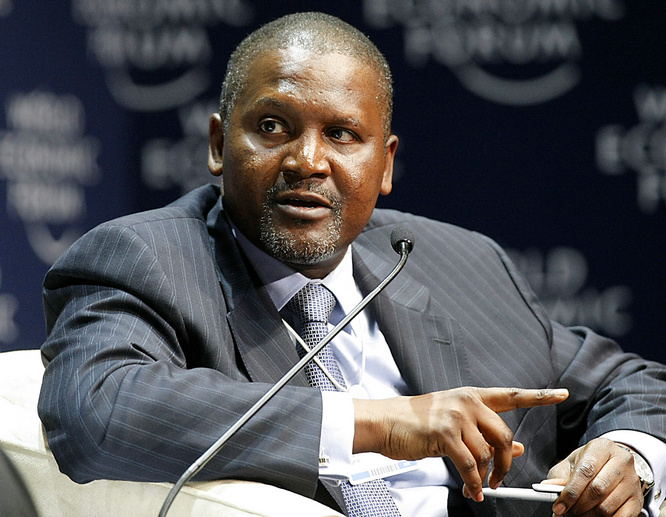
Founding Stones of a Cement Empire
"In business, anticipating the future and strategizing accordingly is key to success." This sentiment encapsulates Aliko Dangote's entry into the cement industry. While most investors in the late 20th century chased high-profit fast-moving consumer goods, Dangote perceptively foresaw explosive growth in cement demand driven by Africa's rapid economic expansion and urbanization. He aimed not just to benefit from Africa's growth but to propel it.
In 2003, Dangote Group invested billions in constructing Africa's largest cement factory in Nigeria, a bold gamble at the time. With his profound market insight and unwavering faith in Africa's future, Aliko persevered. Within years, Dangote Cement became Nigeria's market leader and swiftly expanded across West Africa. By 2016, it boasted an annual capacity exceeding 45 million tons, leading the African cement manufacturing scene with a substantial market share.
Dangote's success in cement wasn't merely about rapid expansion but also his relentless pursuit of technological innovation and production efficiency. He introduced cutting-edge production lines, enhancing productivity and lowering costs, while optimizing logistics to ensure efficient distribution across Africa. "We're not just selling cement; we're providing solutions for Africa's construction needs," he emphasized, a philosophy that positioned Dangote Cement as the go-to supplier for large infrastructure projects.
The impact of Aliko Dangote's cement empire extends beyond economics, creating tens of thousands of jobs, fostering industrial diversification and playing a pivotal role in building schools, hospitals, roads, thereby improving locals' living standards and exemplifying corporate social responsibility in action.
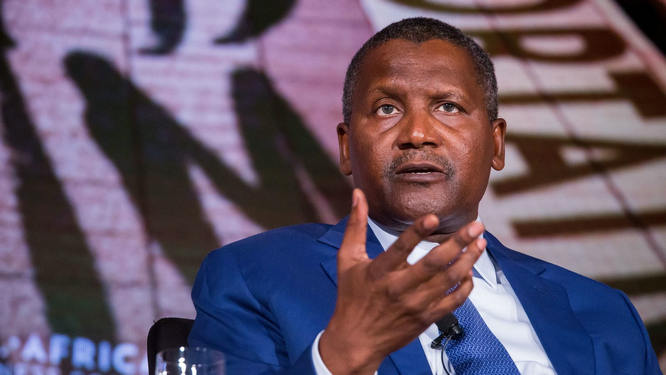
The Birth of a Real Estate Kingdom
"In Africa, we build not just structures, but dreams," Aliko Dangote eloquently stated, encapsulating his foray into real estate. Amid Africa's economic surge and accelerated urbanization, demand for high-quality housing and commercial spaces skyrocketed. Sensing an opportune moment to forge a new industry empire, one that could fulfill Africans' aspirations for better living and working environments, Dangote seized the chance.
The Group's maiden real estate project, a luxury apartment complex in Lagos, Nigeria, epitomized this vision. Incorporating advanced design concepts, materials, and eco-friendly features, it swiftly became the darling of the upscale market. Its swift sellout validated the market's thirst for premium housing and marked Aliko's triumphant entry into real estate.
With plans to invest billions more in residential, commercial, retail, and leisure developments over subsequent years, Dangote Group aimed to generate thousands of jobs and significantly boost local economies. Aliko's ambition was to propel Africa's urban landscape onto the global stage, showcasing Africa's modern face to the world.
Understanding that long-term success in real estate necessitated a fusion of local needs with international standards, he integrated advanced construction techniques and management expertise while nurturing local talent and sourcing indigenous materials, fostering economic circularity. This "global perspective, local action" strategy bolstered project sustainability and deepened community ties.
"Achieving genuine success means positively impacting society," Aliko maintained, never losing sight of his corporate social responsibility in real estate development. Alongside premium housing, he committed to affordable housing projects, aiding low-income families improve their living conditions. All projects adhered strictly to environmental standards, striving for a balance between development and conservation.
Conclusion: Boundless Dreams, Africa's Beacon
Aliko Dangote is not just a successful entrepreneur but a fervent advocate for African development. "Africa's potential knows no bounds, and we must take our destiny into our own hands," he believes. His substantial investments in African infrastructure projects aim to break trade barriers and promote regional economic integration, such as his plans to invest billions in fertilizer plants and oil refineries in the Niger Valley. These projects promise substantial job creation and reduce Africa's reliance on imports.
As a philanthropist and champion of social responsibility, Dangote, through his foundation, actively supports educational, health, and disaster relief initiatives. Their $100 million pledge to combat Ebola underscores his commitment in times of crisis. For him, "true wealth is used to help those in need." His charitable endeavors infuse positive energy into Africa's development, adding a humanitarian glow to his business empire.
Aliko Dangote's story is an African legend, proving that even in resource-constrained environments, wisdom, courage, and perseverance can yield remarkable achievements. His business empire symbolizes not just personal triumph but also Africa's self-driven economic development and journey towards prosperity. Through his actions, Dangote signals to the world that Africa's future is hopeful, and he stands as the radiant beacon guiding Africa towards a grand resurgence.
